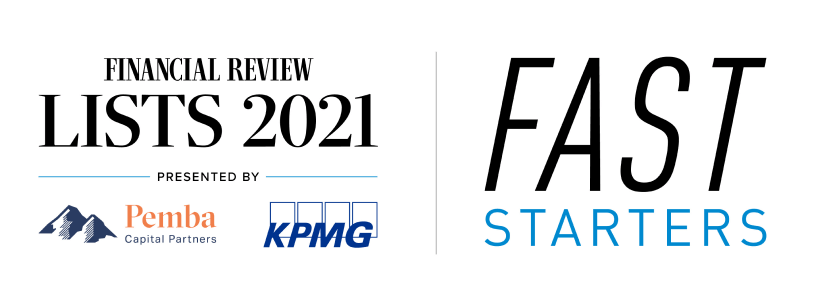Equipment Financing
Your business needs the right equipment to run smoothly and maximise profits. That might be kitchen equipment, company vehicles, or special machinery – it all depends on what your business does and what you need to do it.
Replacing, upgrading or purchasing new equipment can be costly, especially if you need to pay upfront. With equipment financing, you can use existing equipment or the equipment you want to purchase as collateral to get what you need, without hurting your bottom line.
What is equipment financing?
From computers and coffee machines to cars, equipment financing is a type of business loan designed specifically for the purchase of business equipment.
You can purchase and start using the equipment right away and make payments toward what you borrow over time, using the equipment itself as collateral. The loan amount and terms are dictated by the price of the equipment. Once you’ve made all of your payments, the equipment is yours to keep.
How does equipment financing work?
The process of applying for equipment financing is fairly easy and is typically less difficult than a traditional loan:
- Determine your eligibility The requirements vary between lenders, but as a guide you’ll need to have been operating for at least six months and have proof of a sales record in that time to be eligible to apply.
- Evaluate Look at the cost of equipment you hope to use to determine how much you might require as a loan.
- Apply For some lenders this can be done online, and with little details required, is a quick process.
- Receive approval and your funds The money can be funded on the same day of approval.
- Purchase the equipment you need Now, you can make your upfront purchase and begin making regular repayments on the loan.
The difference between equipment financing and leasing
Equipment financing enables you to buy a piece of equipment outright and pay it off in instalments. Leasing, on the other hand, enables you to rent the equipment for a set period of time.
Both options allow you to get the equipment you need, when you need it. But there are several pros and cons to both:
Equipment Financing
| Pro | Con |
|---|---|
| Management repayments instead of a large upfront cost. | If the equipment becomes obsolete, you might still be paying off the loan even after you are no longer using it. |
| You will own the equipment after your repayments are complete. | It may depreciate and you may not be able to deduct the full cost on your tax return each year |
Equipment Leasing
| Pro | Con |
|---|---|
| Usually does not require a down payment or collateral | Renting equipment is usually more expensive in the long run. |
| You only pay for what you use. | You give the equipment back after use. |
5 quick facts to remember about equipment financing
- Equipment financing works similarly to a standard secured business loan. You apply for a loan to cover the costs of buying a new piece of equipment outright.The equipment you're purchasing can usually be used to secure the loan, it's unlikely you'll be asked to put up any additional collateral.
- The equipment you're purchasing can usually be used to secure the loan, it's unlikely you'll be asked to put up any additional collateral.
- The amount you can borrow generally depends on what you’re looking to buy, whether it is old or new and how much it is worth.
- The loan term generally runs through the expected life of the piece of equipment.
- Equipment financing usually comes with fixed interest rates between 8% and 30% and you can expect to make the same payment on a regular schedule.
Remember, you don’t necessarily need a specific type of loan to buy equipment, so consider whether another type of loan might work better for you.
Questions to ask before applying for equipment financing
You want to ensure you apply for the right type of financing for your business so that you get the best bang for buck while also taking advantage of opportunities. Here are a few questions to ask before applying for equipment financing:
- How much capital do I need? You need to have a firm understanding of what’s needed and how much it will cost before you can determine whether it is cost-effective for your business.
- How long do I need the equipment? If you only need the equipment for a short length of time, it might be better to consider leasing. Otherwise you might be stuck paying off equipment you no longer use.
- How quickly is the technology changing within my industry? / When will it need to be upgraded? Similarly, if your industry is changing fast or the equipment is likely to be outdated in a short time period, you’ll want to consider leasing.
- What impact will the equipment have on my business? You should aim to have an understanding of how the equipment will help you generate a return on your investment to ensure you’re better off in the long term.
- Do I want to ‘finance to own’ or ‘finance to return’ the equipment? There are advantages to both options, depending on your business circumstances. Consider which option is right for you.
Equipment Financing FAQ
What information might I need to apply for equipment financing?
A lender may require the following: a completed application form, signed privacy documents, a commitment schedule, details about the equipment (i.e. what it is and where it is being sourced), and financial information such as personal tax returns or cashflow forecasts.
Can I receive equipment financing if I’m self-employed?
This will largely come down to the lender’s requirements, along with other factors such as how long you've been self-employed, your credit history, and whether or not you can show sufficient proof of income.
What equipment can I finance?
Different lenders will have differing policies regarding what types of equipment or goods they are willing to finance. Generally, equipment that can be depreciated for business purposes are accepted.
How long can I finance the equipment for?
Although this depends on the lender’s terms, many offer periods between 12 months to 60 months. It usually comes down to how expensive the equipment is, along with what its expected life will be.
Still not sure if equipment financing is right for you? Compare other types of loans to learn more.




